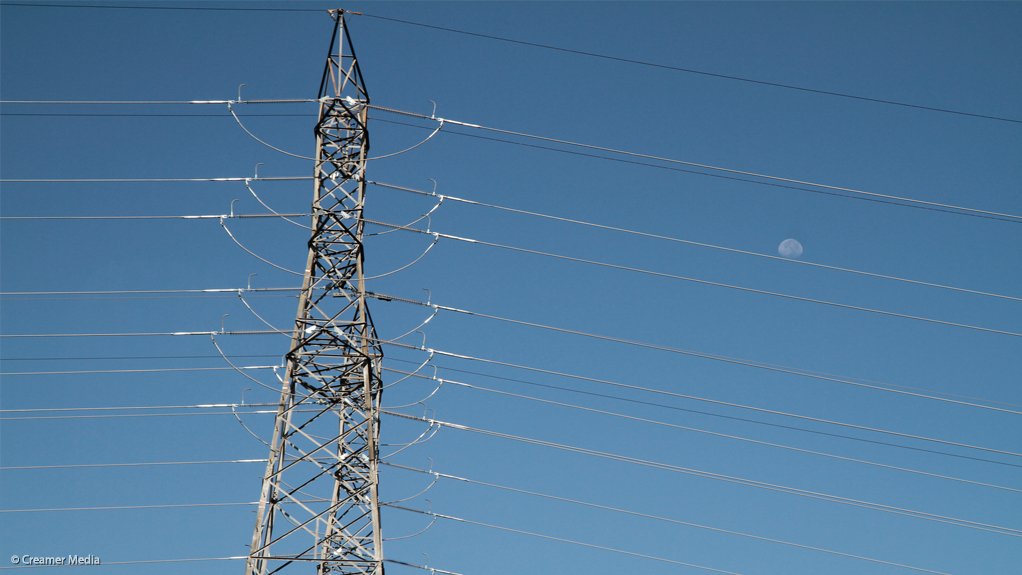NTCSA aiming to launch electricity market platform on April 1
The National Transmission Company South Africa (NTCSA) has indicated that it is aiming to have the initial phase of the South African Wholesale Electricity Market, also referred to as the SAWEM, operating by April 1 next year, should it have received regulatory approval to do so.
In a presentation to the Portfolio Committee on Electricity and Energy, NTCSA’s Andrew Etzinger reported that it had applied to the National Energy Regulator of South Africa (Nersa) for a Market Operator licence.
He added that significant progress had also been made in finalising the Market Code, which will define the rules of engagement and qualifying criteria for participants.
The Market Operator is being established in line with the Electricity Regulation Amendment (ERA) Act, which outlines a five-year period in which a fully independent Transmission System Operator (TSO) should be established as part of a transition to a competitive market structure.
In the interim, the NTCSA is operating as an independent subsidiary of Eskom with its own board, led by chairperson Priscillah Mabelane and interim CEO Segomoco Scheppers, with an executive search having been recently initiated to find a permanent CEO.
The NTCSA is responsible for operating and maintaining the existing physical transmission network, as well as expanding the grid in line with a Transmission Development Plan that envisages the roll-out of 14 500-km of new powerlines and 133 000 MVA of new transformers by 2034.
It is also responsible, however, for establishing the independent TSO and setting up a Market Operator to oversee a non-discriminatory trading platform for various physical, financial and regulated markets, as well as the Market Code.
Etzinger told lawmakers that the latest draft of the Market Code had taken account of written comments on the draft code published in April 2024, as well as inputs received during ten hybrid workshops that had involved some 300 participants.
Describing the latest draft as a “good product”, Etzinger said it would be shared at a final workshop to be held during June, before being submitted to Nersa, which would be the ultimate custodian of the code, for its approval.
Nersa was expected to host public hearings on the Market Code before finalising the framework and Etzinger indicated that changes would probably be made to the code in future as lessons emerged during the initial phase of operations.
Nevertheless, Etzinger said the NTCSA had set an “aspiration” for having the market “up and running” by April 1, 2026, but stressed that operationalisation would proceed only after Nersa’s approval.
“The electricity market is coming … and we are very excited from the NTCSA point of view to be part of the development, introduction and, ultimately, the running of the market,” he added.
Its launch, he said, would represent a dramatic change in the electricity landscape that had remained relatively constant in South Africa for 102 years.
The market would continue to evolve toward full competitiveness with the aim of levelling the playing field for generators, increasing efficiency, and providing consumers with a choice in their provider, be it their existing distributors or future retail electricity traders.
Eskom had been operating an internal ‘Dynamic Energy Market’ since October 2019, whereby its power stations bid energy into the market to be “bought” by Eskom Distribution.
“It’s a simulation exercise to build experience and it has gone well,” Etzinger said, reporting that the intention now was to open it up to the utility scale independent power producers as a way of further stress testing its functionality and building up trading skills.
A SAWEM School will also be launched together with tertiary institutions, with the first session at Wits Business School in July, to expose more industry participants to the market concept and to how trading works. Course material has been developed, alongside a simulation tool.
“The market will be introduced in a responsible manner over time to ensure that security of supply is maintained,” Etzinger said, while underlining that it was a voluntary market.
He also stressed that subsidy frameworks for indigent consumers would be retained when the market began operating.
“We are encouraging all South Africans to give it a full go to get this going by April 1, 2026, while understanding that this will be the first iteration and that, as the market evolves and becomes more sophisticated over the next five years, it will be increasingly closer to the ultimate call in the ERA for a fully competitive electricity market.”
Article Enquiry
Email Article
Save Article
Feedback
To advertise email advertising@creamermedia.co.za or click here
Announcements
What's On
Subscribe to improve your user experience...
Option 1 (equivalent of R125 a month):
Receive a weekly copy of Creamer Media's Engineering News & Mining Weekly magazine
(print copy for those in South Africa and e-magazine for those outside of South Africa)
Receive daily email newsletters
Access to full search results
Access archive of magazine back copies
Access to Projects in Progress
Access to ONE Research Report of your choice in PDF format
Option 2 (equivalent of R375 a month):
All benefits from Option 1
PLUS
Access to Creamer Media's Research Channel Africa for ALL Research Reports, in PDF format, on various industrial and mining sectors
including Electricity; Water; Energy Transition; Hydrogen; Roads, Rail and Ports; Coal; Gold; Platinum; Battery Metals; etc.
Already a subscriber?
Forgotten your password?
Receive weekly copy of Creamer Media's Engineering News & Mining Weekly magazine (print copy for those in South Africa and e-magazine for those outside of South Africa)
➕
Recieve daily email newsletters
➕
Access to full search results
➕
Access archive of magazine back copies
➕
Access to Projects in Progress
➕
Access to ONE Research Report of your choice in PDF format
RESEARCH CHANNEL AFRICA
R4500 (equivalent of R375 a month)
SUBSCRIBEAll benefits from Option 1
➕
Access to Creamer Media's Research Channel Africa for ALL Research Reports on various industrial and mining sectors, in PDF format, including on:
Electricity
➕
Water
➕
Energy Transition
➕
Hydrogen
➕
Roads, Rail and Ports
➕
Coal
➕
Gold
➕
Platinum
➕
Battery Metals
➕
etc.
Receive all benefits from Option 1 or Option 2 delivered to numerous people at your company
➕
Multiple User names and Passwords for simultaneous log-ins
➕
Intranet integration access to all in your organisation




















